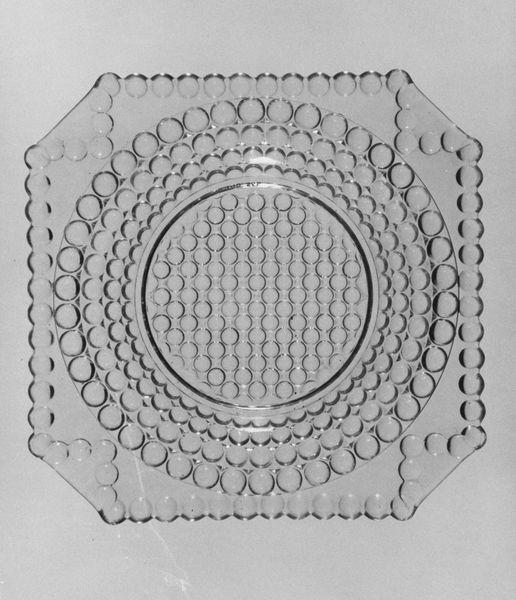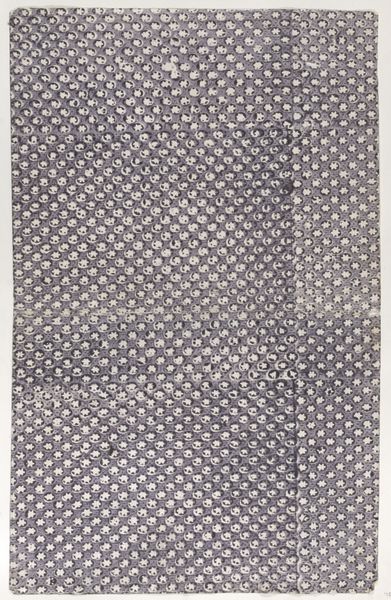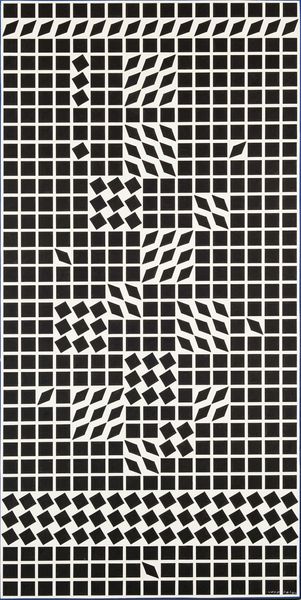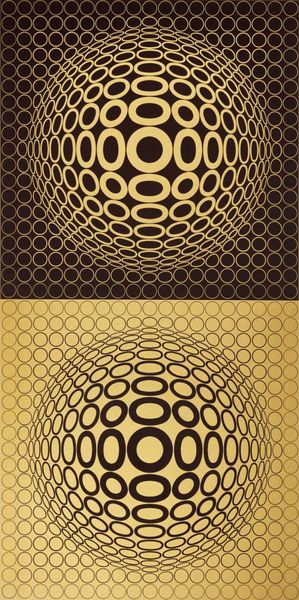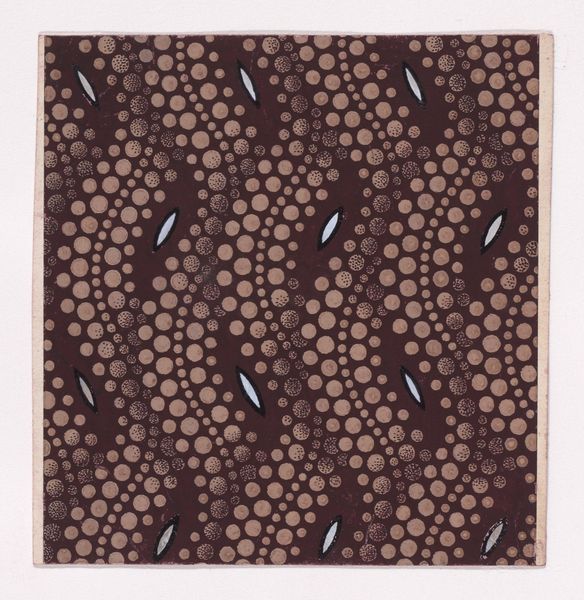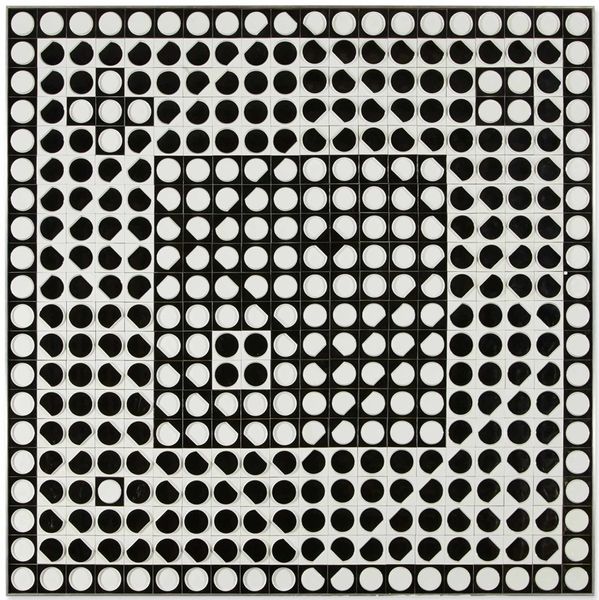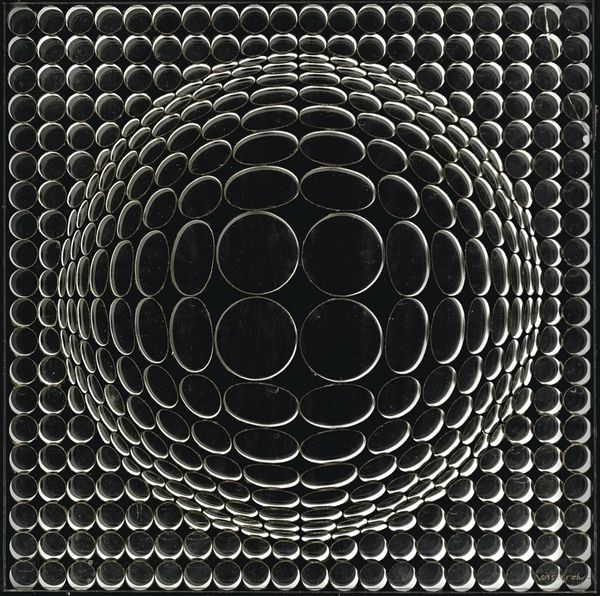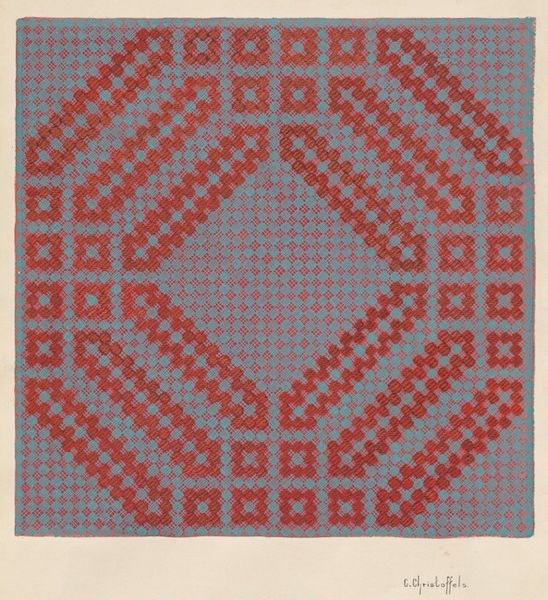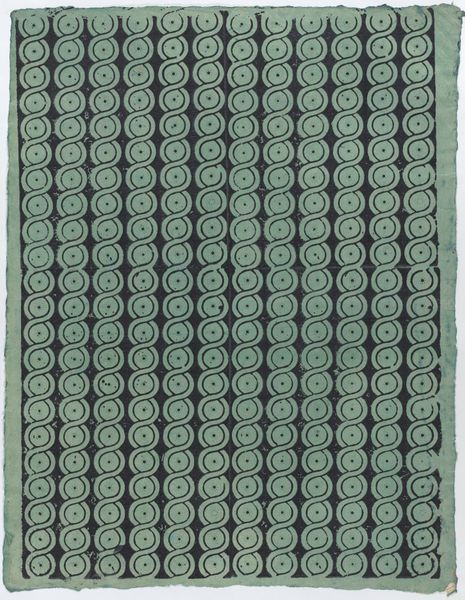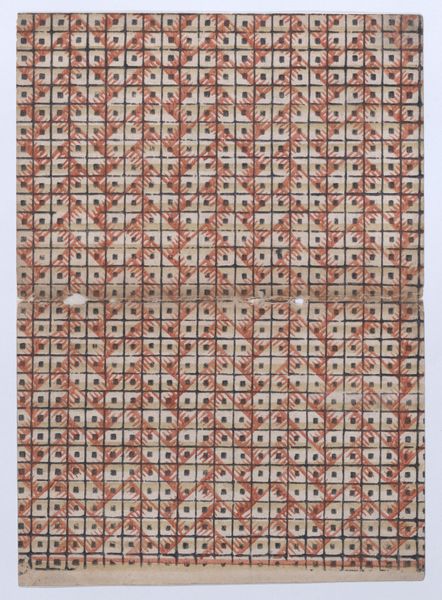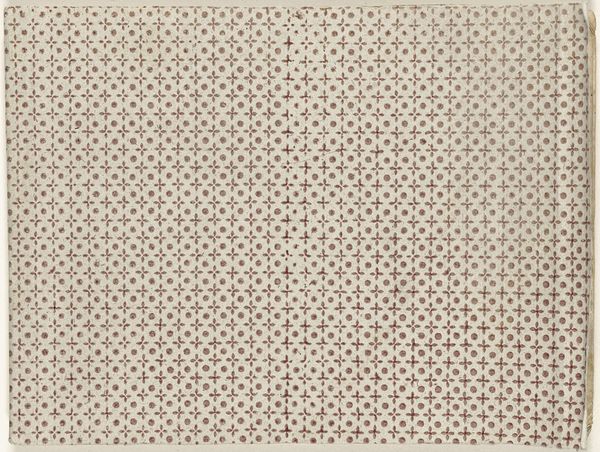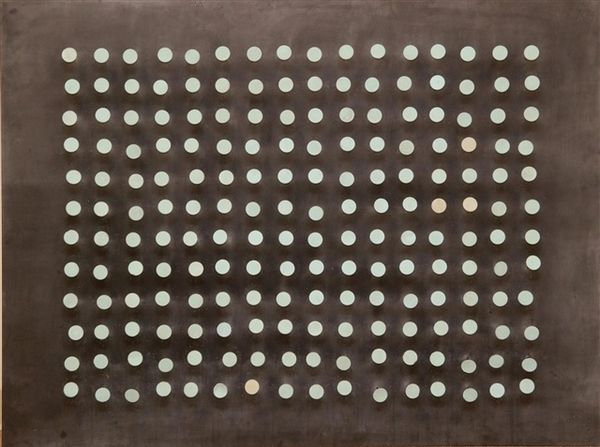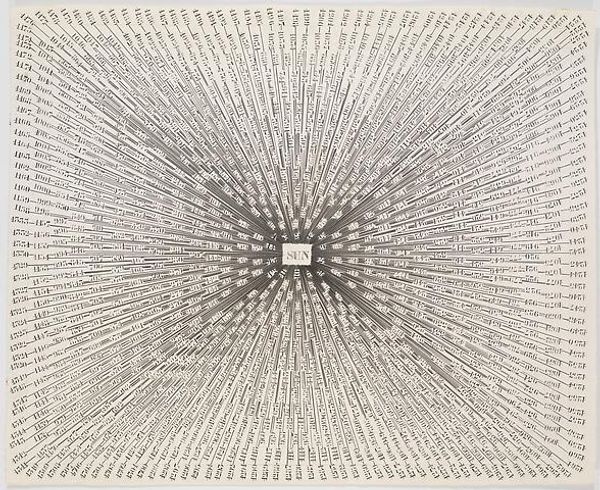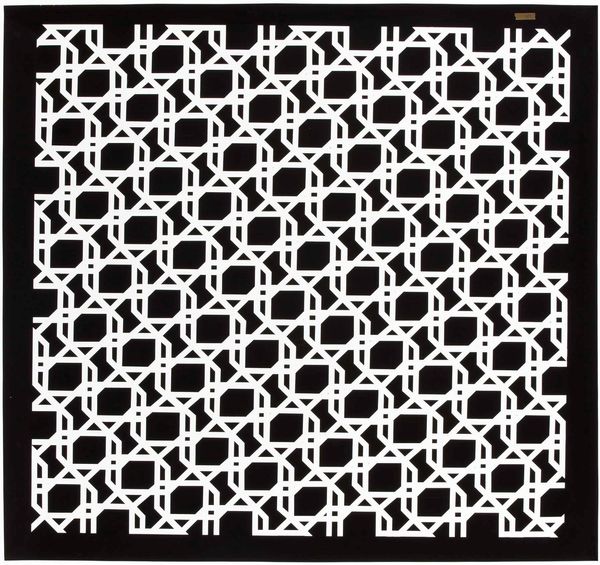
#
op-art
# print
#
geometric
#
line
Copyright: Modern Artists: Artvee
Curator: What a compelling piece. This is "Composition" by Victor Vasarely, circa 1980, and is a print. Editor: It feels almost hypnotic. The stark contrast and the repetition are… intense. Gives me a sense of something shifting, like gears maybe. Curator: That makes sense considering Vasarely’s position within Op Art, right? He was a champion of optical illusions and visual dynamism through very precise means. The process here – printmaking – allows for mass production, for wider access to these explorations of perception. Editor: Right. I mean, beyond just the visual tricks, I see an interesting dialogue here regarding how society produces, consumes, and understands itself. The geometric rigor and precision echoes a kind of… late capitalist anxiety. This intense, relentless logic, if that makes any sense. Curator: Absolutely. The grid structure, those repeated circular forms...they become almost industrial in their effect. I find myself thinking about how many impressions had to be made to get the gradated effect from the outside moving inwards, toward this visual opening up at its center. What kind of labor and materials are we talking about in a piece that tries to imitate digital space, pre-personal computers? Editor: It feels particularly charged when considered in the context of its time – the Cold War anxieties, burgeoning globalization, technological advancements... The circles themselves, while appearing simple, suggest interconnectedness, global systems, and potentially, surveillance. Their almost floral rendering also gives rise to this simultaneous feeling of organicness with inorganic construction. Curator: So interesting! This tension, the man-versus-machine dialogue that underpins so much post-war art, feels especially charged here. Even this very image feels so analogue, yet seems to aspire toward something digitally derived. The physical means – the printing – feels integral to grasping that historical moment. Editor: Agreed, and let's also consider what the very term "Composition" implies. I feel like the intentional flattening out here defies and transcends this categorization, in some ways. This idea of everything becoming information. Curator: Food for thought, certainly. And the stark contrast contributes to the impact it has on the viewer today. I see a continuation and also divergence, if you will, with current debates around artificial intelligence. Editor: It's as though Vasarely captured something essential about the accelerating pace of change, not only of technological revolution, but also a prescient anxiety for generations to come.
Comments
No comments
Be the first to comment and join the conversation on the ultimate creative platform.
